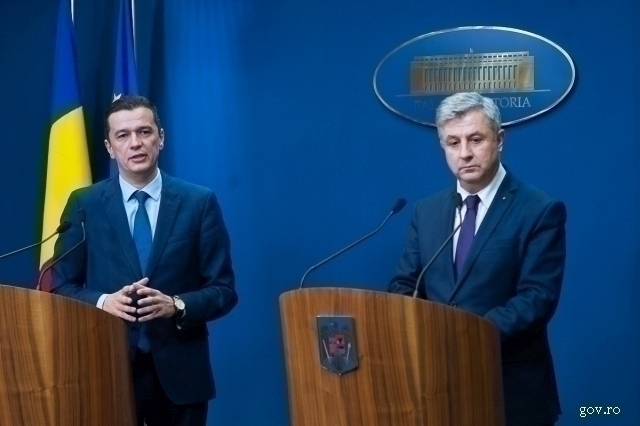Pardon under public debate
The the Romanian Justice Ministry will hold a public debate on the highly controversial draft emergency orders that grant collective pardon and amend the criminal codes.

Leyla Cheamil, 27.01.2017, 13:29
The Romanian Government’s plan to pass the draft emergency orders that would grant collective pardon and would revise the Criminal Code has generated public outrage across Romania. The draft ordinances, promoted by the Ministry of Justice, have brought thousands of people to the streets of Bucharest and other cities across the country, who protested at the bills that the Grindeanu Government intended to pass last week.
Protesters believe that famous defendants and convicts, many of them influential politicians and public figures would thus get out of prison or might ask for their cases to be closed. President Klaus Iohannis himself has stood against these modifications and initiated the procedure for a referendum to be held on this issue. Under the Law on transparent decision-making in public administration, on Monday the Ministry of Justice will hold a public debate on these draft emergency orders.
A disinformation campaign has created unnecessary tensions, and these emergency orders would not hamper the fight against corruption, said the Senate Speaker Calin Popescu Tariceanu on the public radio: “No act of corruption would be pardoned. Also, the offences committed by murderers or rapists would not be pardoned either. There is no amnesty provision that would entitle suspicions that these ordinances were drafted to serve certain interests, as it has been implied.”
On the other hand, the main opposition party in Romania, the National Liberal Party, has threatened with a motion of no-confidence if the Government passes the two drafts. Here is the interim president of the party Raluca Turcan: “The Government’s intention to give priority to these emergency orders on pardon and changes to the Criminal Code, instead of focusing on the state budget, proves that it is not interested in the real issues it raised during the election campaign, but only in serving the interest of the people around their group of decision-makers.”
The Higher Council of Magistracy has advised against these draft orders, but it cannot issue any official ruling, as it is only an advisory body in this matter. In turn, Romania’s Chief Prosecutor Augustin Lazar has said that there is no emergency in passing them: “These emergency orders would do nothing but weaken the Romanian state’s institutional capacity to fight against corruption.”
Talks over the draft emergency orders regarding collective pardon and changes to the Criminal Code are being held against the background of Romania being one of the top three countries in terms of number of convictions issued by the European Court of Human Rights. According to the Court President Guido Raimondi, most of these convictions are related to prison conditions.
(Translated by Mihaela Ignatescu)






























